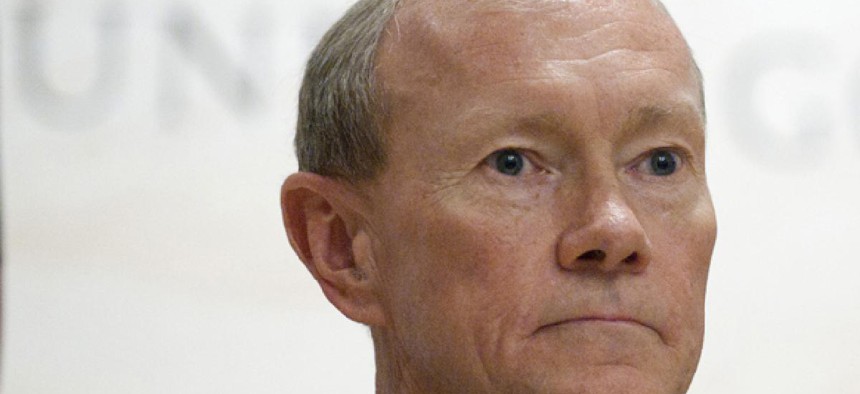
Defense Department
Dempsey says new Pentagon budget will balance past lessons, future threats
The chairman of the Joint Chiefs of Staff will join the Defense Secretary on Thursday afternoon to announce plan details.
The Pentagon budget which will be released on Thursday reflects a broad attempt to prepare for the threats facing the country after Iraq and Afghanistan in the new era of fiscal austerity, the nation’s top military officers said in an exclusive interview.
Gen. Martin Dempsey, chairman of the Joint Chiefs of Staff, told <i>National Journal</i> that the new budget was not an attempt to discard controversial strategies like the manpower-heavy counterinsurgency used in both Iraq and Afghanistan. Instead, he said, it was an effort to rebalance the forces so the military can carry out growing numbers of targeted missions, like Tuesday’s Special Operations raid into Somalia, as well as future wars which may bear little resemblance to Iraq and Afghanistan.
“We’ve got to learn the lessons of the last 10 years of war,” Dempsey said on Thursday. “This isn’t about taking COIN or taking stability ops and putting it on a shelf and saying, ‘Wow, I hope we’re not ever going to have to do that again.’ This is about taking the lessons that we’ve learned and making sure that they permeate.”
Dempsey said the scale down does not mean that the military, writ large, is “tired” of war, though there were “a wide variety of opinions” about the way forward.
The strategy will be reflected in the budget details to be revealed later at the Pentagon by Dempsey and Defense Secretary Leon Panetta, including an expected call to reduce the Army and Marine Corps by more than 100,000 troops. A U.S. official said the budget would also call for increasing drone forces by 30 percent, and growing the nation’s elite special operations forces by 10 percent, from 63,750 this year to 70,000.







